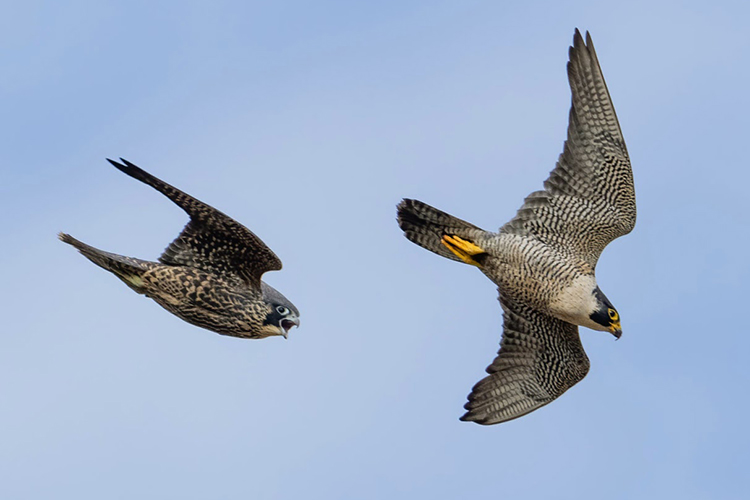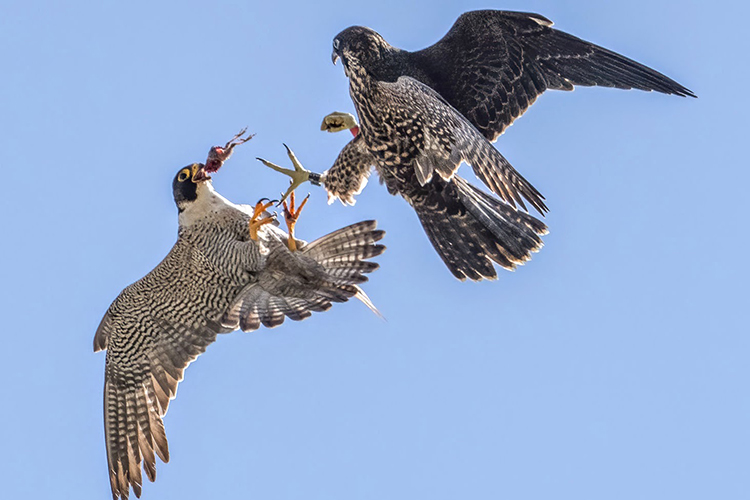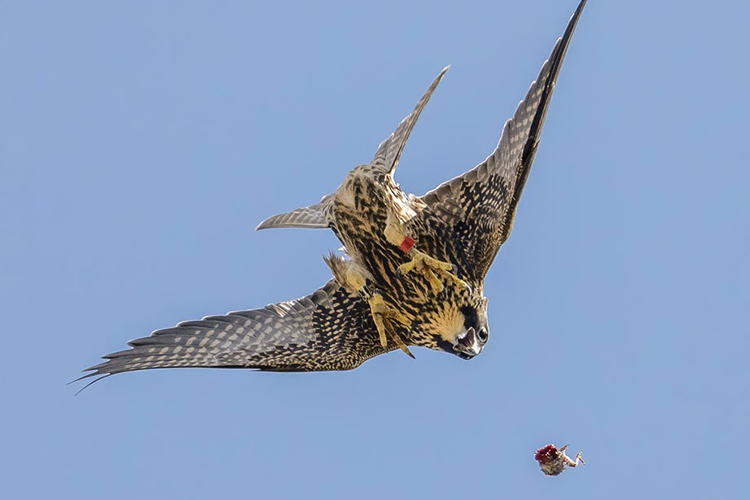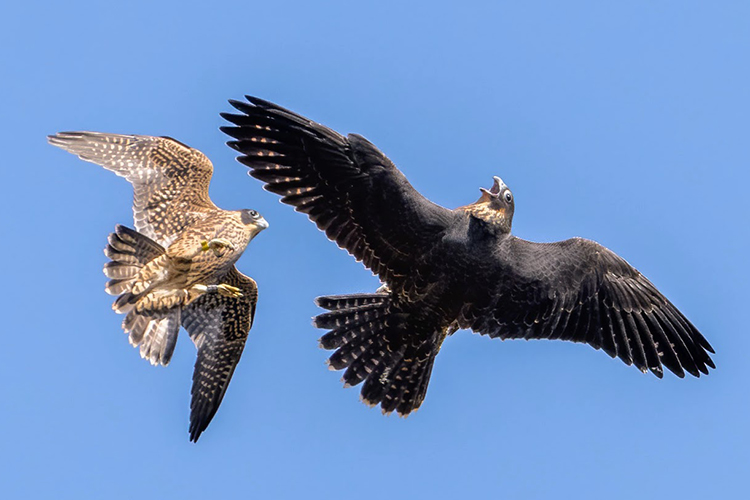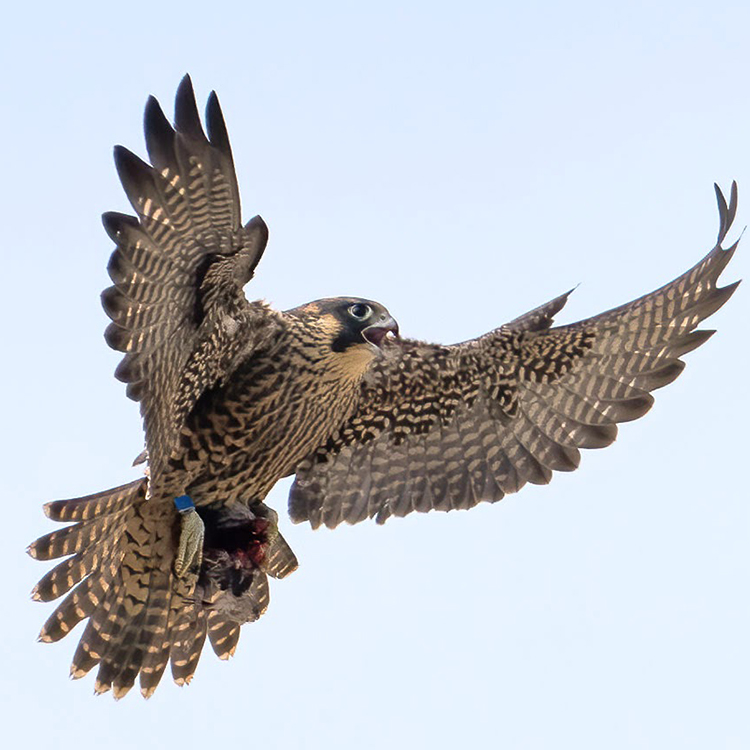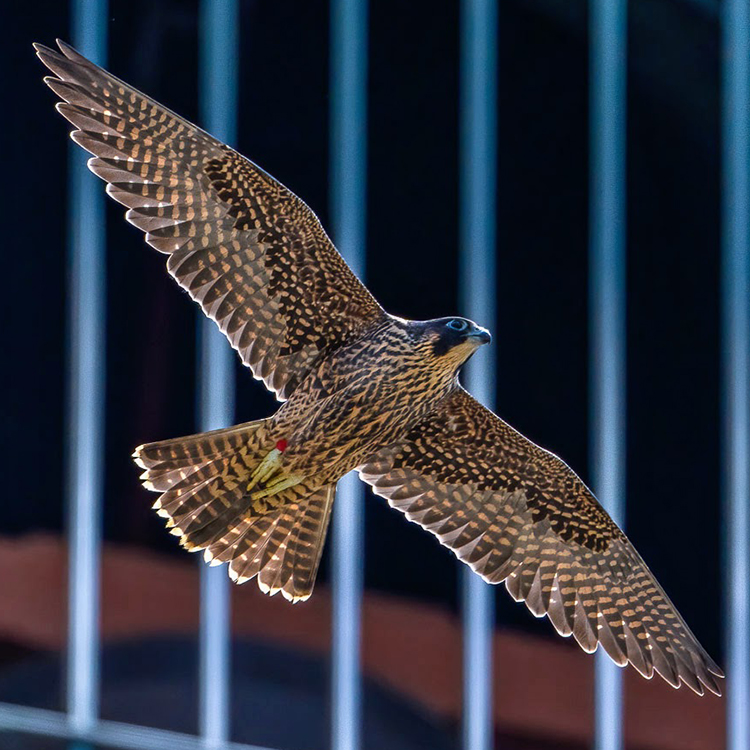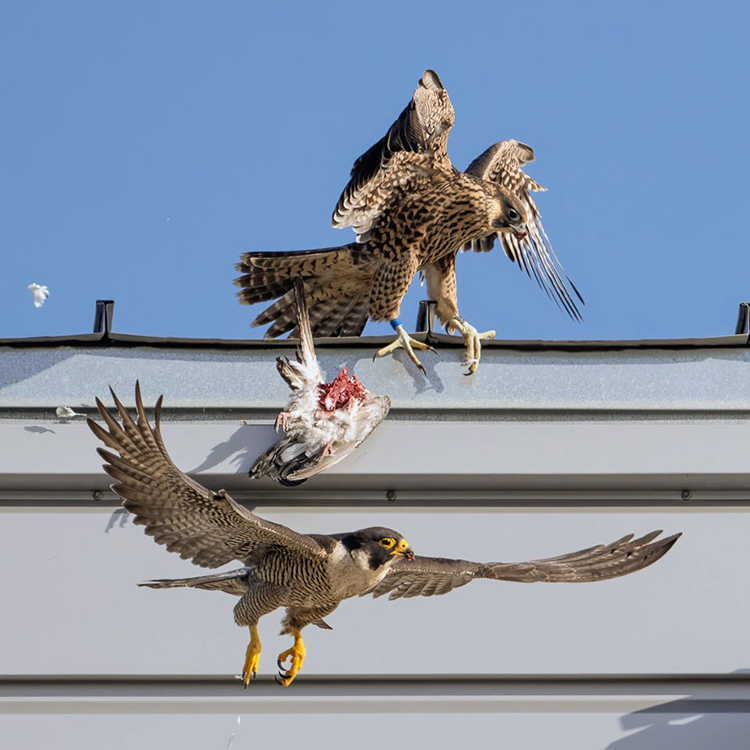Empty nest: Annie and Lou’s young falcons have flown away
Able to fly and hunt, UC Berkeley's Zephyr, Luna and Rosa now will seek territories of their own.
July 12, 2023
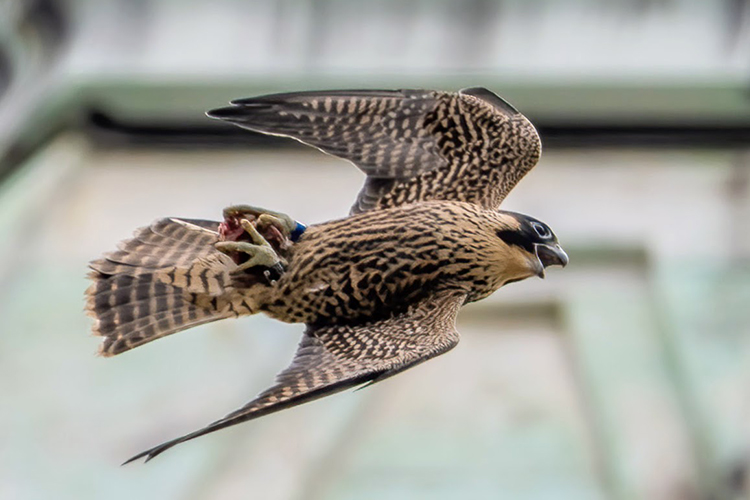
Adept at catching prey for her meals, Luna flies through campus weeks before departing from her Campanile home. (Photo by Bridget Ahern)
Like parents with teens who will leave home for college next month, UC Berkeley peregrine falcons Annie and Lou recently watched their offspring fly off into the big world to create their own destinies. They’d taught them life skills, like flying and hunting, practicing with them in the skies above campus and swooping in to help if they got stranded or tired.
All three young falcons — Zephyr, Luna and Rosa — spread their wings to fly off the Campanile for the first time on May 26. After many more test flights and landings, Zephyr left campus for good in late June, with his sisters following a week or so later.
First-time dad Lou is getting high marks from Cal Falcons for his paternal skills.
“Lou did phenomenally well. He did everything you hope a male peregrine will,” said Sean Peterson, an environmental biologist with Cal Falcons. “He was a fierce defender of the territory and brought a ton of food for his brood. Fingers crossed this will be his first (brood) of many with Annie!”
Where the siblings will wind up, an event called juvenile dispersal, “is one of the really big black boxes of raptor biology,” said Peterson. “We know very little about what juvenile birds do after they leave their parents’ territory. It is unlikely we’ll ever see one of Annie’s chicks return to the territory — we’ve never had one return previously. They usually try to find their own place.”
The slideshow above, with photos by wildlife photographer Bridget Ahern, provides a parting glimpse of the young raptors in action, getting ready to strike out on their own.
